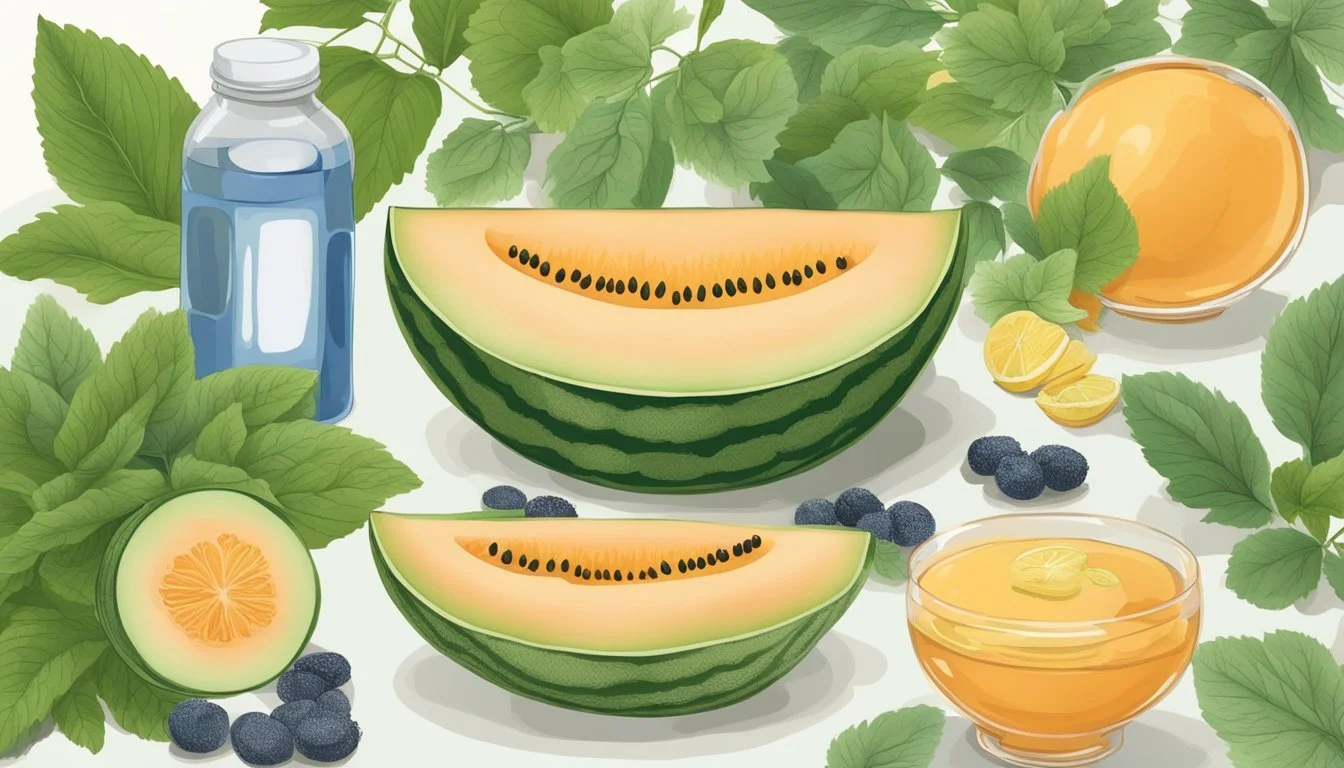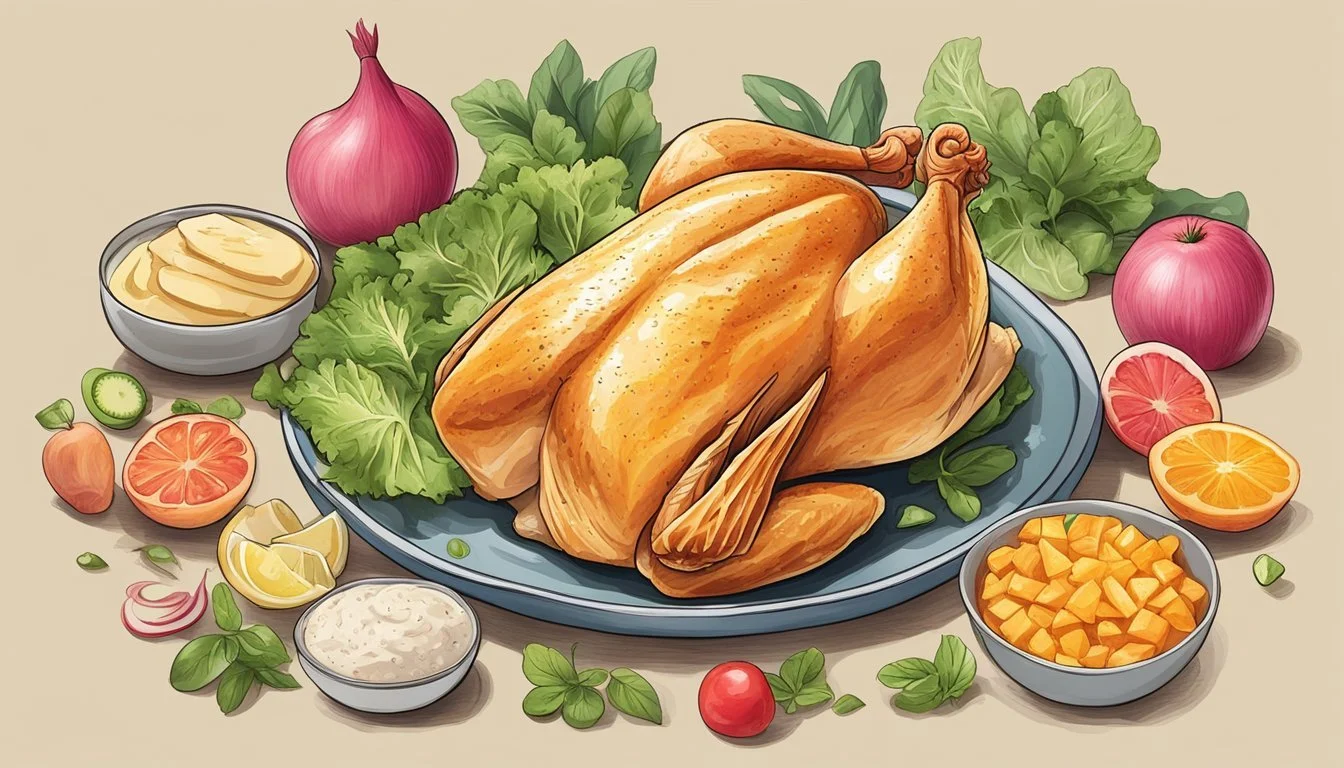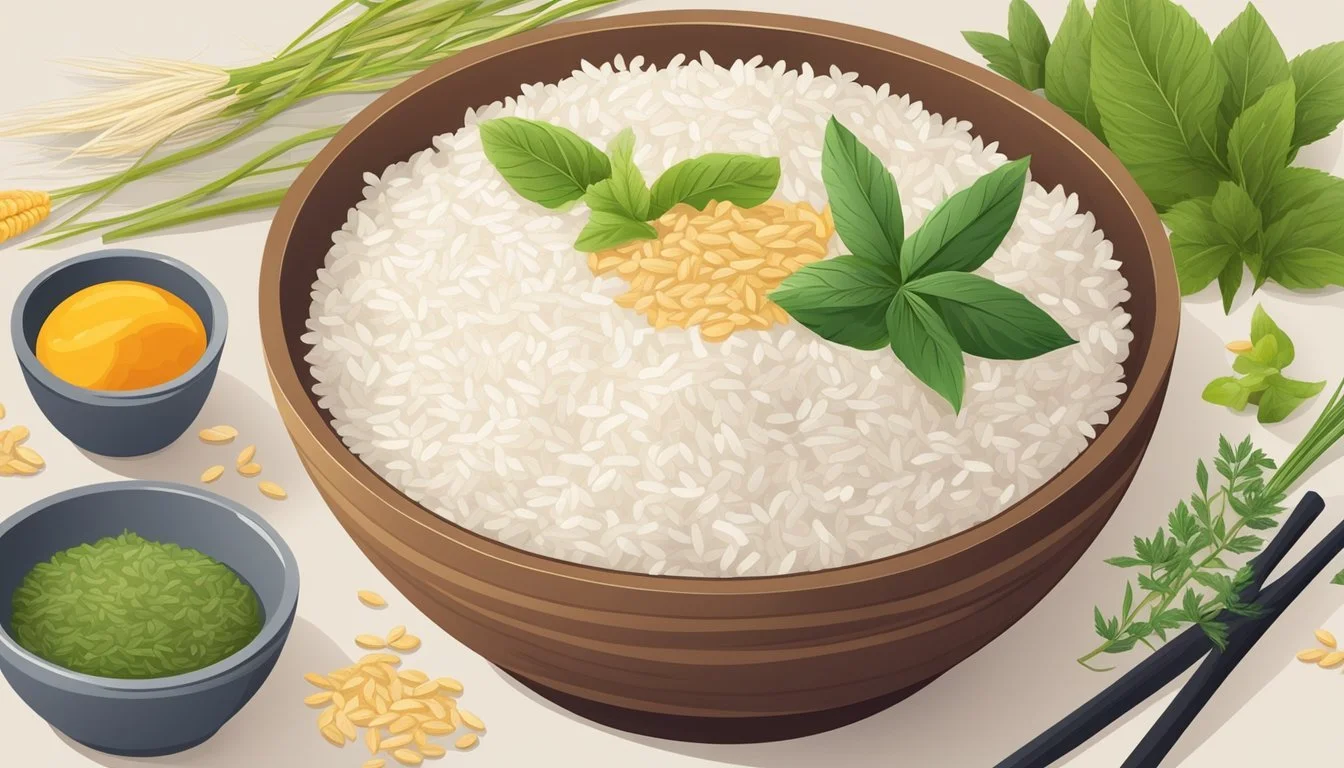GERD-Friendly Foods: Dietary Choices to Ease Acid Reflux
Gastroesophageal reflux disease (GERD) affects many people globally, causing discomfort and disruption to daily life. One key factor in managing this condition is diet, as certain foods can either alleviate or exacerbate symptoms. Understanding which foods to include and avoid can make a significant difference in managing GERD.
Dietary choices play a crucial role in managing GERD by reducing symptom severity. Adopting a high-fiber diet, monitoring meal sizes, and avoiding specific trigger foods are some of the methods that can help. By integrating these dietary changes, individuals with GERD can potentially improve their quality of life.
1) Oatmeal
Oatmeal is a highly recommended breakfast option for those suffering from GERD. Its high fiber content aids digestion and helps absorb stomach acid. Whole grains like oatmeal can soothe the digestive tract and prevent acid reflux symptoms from worsening.
This versatile food is easy to prepare and can be customized with various toppings. Adding non-citrus fruits like bananas or melons can enhance its flavor while ensuring it remains gentle on the stomach. Another benefit is that oatmeal tends to be filling, which can help maintain stable blood sugar levels and reduce overeating.
Eating oatmeal regularly can be a practical solution to manage GERD symptoms naturally. Its simplicity and nutritional value make it a reliable choice for individuals looking to alleviate discomfort without sacrificing taste or convenience.
2) Ginger Tea
Ginger tea is often suggested as a natural remedy for managing GERD symptoms. The anti-inflammatory properties of ginger can help soothe the digestive tract and reduce acid reflux.
Brewing ginger tea involves steeping fresh ginger slices in hot water for several minutes. This method ensures that the maximum amount of beneficial compounds are extracted.
It is crucial to consume ginger tea in moderate amounts. Too much ginger can have adverse effects and might exacerbate symptoms in some individuals.
In addition to its potential effectiveness in managing GERD, ginger tea is also a caffeine-free alternative to traditional teas and coffee, which can trigger acid reflux.
Many people find ginger tea soothing and enjoy its slightly spicy flavor. For added benefits, a small amount of honey or lemon can be mixed into the tea, though some might need to avoid lemon if it triggers their GERD symptoms.
3) Bananas
Bananas are often recommended for those dealing with GERD. Their low acidity helps soothe the stomach lining and reduce irritation.
Rich in pectin, a soluble fiber, bananas can help move stomach contents through the digestive tract, reducing the likelihood of acid reflux. This can be particularly beneficial for those who experience bloating and discomfort.
Bananas also contain natural antacids which can help counteract the effects of stomach acid. Eating a banana can offer immediate, albeit mild, relief from symptoms such as heartburn.
Including bananas in the diet can help maintain a healthy weight. Excess weight can exacerbate GERD symptoms, so nutrient-dense, low-calorie foods like bananas are ideal choices.
Bananas are easy to incorporate into different meals and snacks. They can be eaten on their own, added to smoothies, or sliced on top of cereals and oatmeal.
4) Melon
Melons, particularly varieties like watermelon, cantaloupe, and honeydew, can be beneficial for those managing GERD. They are low in acid, which can help neutralize stomach acid and reduce irritation of the esophagus.
Watermelons are composed of about 92% water, making them incredibly hydrating. This high water content helps dilute stomach acid. Additionally, watermelons have anti-inflammatory properties that may aid in easing digestive discomfort.
Cantaloupes and honeydews are also good choices. Their lower acidity compared to citrus fruits makes them gentle on the stomach. These fruits can contribute to a balanced diet while helping control GERD symptoms by avoiding the triggers associated with more acidic foods.
Consuming melons regularly can provide a refreshing, nutritious option that aligns well with managing GERD. Their fiber content also aids digestion, which is essential for those dealing with digestive issues.
5) Turkey
Turkey is a lean protein that can be a beneficial addition to a GERD-friendly diet. It is lower in fat compared to other meats like beef or pork, which helps reduce the risk of acid reflux symptoms. Lean proteins are generally easier on the digestive system, making them suitable for those who suffer from GERD.
Grilled or baked turkey can be a healthy and delicious option. Preparing turkey without adding high-fat sauces or fried coatings minimizes the chances of heartburn. It's important to avoid spicy seasonings as well, since they can exacerbate GERD symptoms.
Pairing turkey with steamed vegetables or whole grains can create a balanced meal that is gentle on the stomach. Non-citrus fruits, such as apples or pears, can also complement turkey dishes without triggering reflux.
Slices of turkey breast can be used in sandwiches, but it is recommended to use whole grain bread and avoid condiments that are high in fat or acidic like mayonnaise or mustard. Simple tweaks like these can help maintain a GERD-friendly diet while enjoying the versatility of turkey.
Incorporating turkey into a GERD-conscious meal plan can help manage symptoms while providing essential nutrients. From salads to main courses, turkey can be a practical choice for a varied and enjoyable diet.
6) Chicken Breast
Chicken breast is a well-tolerated protein option for those suffering from GERD. Its lean nature helps in minimizing fat intake, which can exacerbate GERD symptoms.
Grilling or baking chicken breast is recommended. These methods avoid adding extra fat, making meals easier for sensitive digestive systems. Marinating the chicken can add flavor without causing discomfort.
An effective marinade for GERD patients includes herbs like basil, oregano, and thyme. A drizzle of garlic-infused oil and some citrus zest—preferably from non-acidic sources like orange—can enhance taste without triggering symptoms.
Another GERD-friendly option is to pair grilled chicken breast with a side of mixed greens and non-citrus veggies. This combination provides a nutritious and safe meal for those with acid reflux issues.
Additionally, chicken breast can be sliced thin and added to salads. Using a dressing made with olive oil and a mild vinegar, such as rice vinegar, helps to keep the meal stomach-friendly.
Lastly, homemade ginger garlic sauce can be a great addition. Ginger and garlic are known for their digestive benefits, making this sauce both flavorful and soothing for those with GERD.
7) Green Beans
Green beans are a recommended food for individuals suffering from GERD (Gastroesophageal Reflux Disease).
They are low in acid and provide a non-irritating option for those prone to acid reflux.
Green beans also offer a nutritious alternative, packed with vitamins and minerals such as vitamin K, vitamin C, and fiber.
Incorporating green beans into meals can be beneficial. They can be steamed, sautéed, or added to soups and salads.
They complement a variety of dishes and are easy to prepare.
Including green beans in a GERD-friendly diet can help reduce symptoms and promote digestive health.
Adjusting one's diet to include low-acid vegetables like green beans is a practical approach to managing GERD.
8) Carrots
Carrots are a great addition to a diet for those managing GERD. They are low in acid and provide a good source of fiber, which can help with digestion and reduce symptoms of acid reflux.
Being nutrient-dense, carrots offer vitamins and minerals such as vitamin A and potassium. These nutrients support overall digestive health.
Because of their natural sweetness and crunch, they can be consumed raw or cooked without triggering GERD symptoms. This makes them an excellent snack or side dish.
Incorporating carrots into meals provides a versatile way to maintain a GERD-friendly diet. Whether in soups, salads, or as a steamed side dish, they offer both health benefits and flavor.
9) Couscous
Couscous is a versatile grain that can be an excellent addition to a diet aimed at managing GERD. It is light and easy to digest, making it less likely to trigger acid reflux compared to other grains.
Rich in fiber, couscous provides a feeling of fullness that can help prevent overeating, a common trigger for GERD symptoms. It serves as a satisfying base for meals without contributing to the common irritants found in fatty or spicy foods.
Couscous can be paired with a variety of GERD-friendly vegetables such as carrots, asparagus, and sweet potatoes. These combinations not only enhance the nutritional value of the dish but also help in managing GERD symptoms effectively.
Consuming couscous instead of refined grains, such as white rice, can offer more benefits. The complex carbs in couscous can help maintain stable blood sugar levels, which is beneficial for overall digestive health.
10) Rice
Rice is a staple that is often recommended for those suffering from GERD. It is a bland food, making it gentle on the stomach and less likely to trigger symptoms.
Both white and brown rice can be beneficial choices. Brown rice offers more fiber, which aids in digestion and can help prevent acid reflux.
Eating rice as part of your meals can provide a steady source of energy without causing irritation. Its high carbohydrate content helps to soak up excess stomach acid.
Incorporating rice into your diet is also versatile. Whether it's served as a side dish or the base of a meal, it complements a variety of GERD-friendly foods.
Understanding GERD
Gastroesophageal Reflux Disease (GERD) is a chronic condition where stomach acid flows back into the esophagus, causing discomfort and potential damage. Recognizing the symptoms and underlying mechanisms of GERD is crucial for managing the condition effectively.
What Is GERD?
GERD occurs when the lower esophageal sphincter (LES) weakens or relaxes inappropriately. The LES usually acts as a barrier, preventing stomach acid from entering the esophagus. When this barrier fails, acid can escape, leading to inflammation and irritation.
Several factors contribute to GERD, including obesity, pregnancy, smoking, and certain medications. Lifestyle choices, such as diet, also play an important role. Foods and beverages that can exacerbate acid reflux include spicy foods, citrus fruits, chocolate, caffeine, and alcohol.
Common Symptoms
The primary symptom of GERD is persistent heartburn, characterized by a burning sensation in the chest that may extend to the neck and throat. This sensation often worsens after eating or when lying down.
Other symptoms include regurgitation of food or sour liquid, difficulty swallowing, and a chronic cough. Some may experience hoarseness or sore throat, especially in the morning, and a sensation of a lump in the throat. These symptoms can significantly impact the quality of life if left untreated.
Dietary Recommendations for GERD
Individuals with GERD can manage symptoms by avoiding specific foods and incorporating beneficial ones. Tailoring the diet can significantly reduce acid reflux and improve quality of life.
Foods to Avoid
Certain foods are known to trigger GERD symptoms and should be minimized or avoided. Acidic foods such as citrus fruits (oranges, lemons) and tomatoes can increase stomach acidity. Caffeine-rich beverages like coffee and certain teas can relax the lower esophageal sphincter, causing more acid to escape into the esophagus.
Alcohol and chocolate can also relax the esophageal sphincter, exacerbating reflux. High-fat foods, including fried items and fatty meats, can delay stomach emptying, leading to increased pressure and acid reflux. Spicy foods and mint are additional triggers that can irritate the esophageal lining and should be consumed with caution.
Foods That May Help
Incorporating certain foods can help alleviate GERD symptoms. High-fiber foods such as whole grains, vegetables, and fruits can promote digestive health and reduce reflux. A Mediterranean diet, which emphasizes fruits, vegetables, lean proteins, and healthy fats, aligns well with managing GERD.
Ginger has natural anti-inflammatory properties and can help soothe the digestive tract. Non-citrus fruits like bananas, melons, and apples are generally safe choices. Lean proteins such as chicken, turkey, and fish can be beneficial when prepared without high-fat methods. Finally, water and herbal teas (like chamomile or licorice) can be soothing choices that avoid common triggers found in other beverages.
Lifestyle Changes to Manage GERD
Lifestyle changes play a crucial role in managing GERD symptoms effectively. Adjustments in eating habits and sleeping positions can notably reduce discomfort and promote better health.
Eating Habits
Eating smaller, more frequent meals instead of large portions can help prevent acid reflux. Avoiding trigger foods such as fatty foods, spicy dishes, onions, garlic, mint, and chocolate is essential. Limiting alcohol and caffeine intake also helps reduce GERD symptoms.
Eating slowly and chewing thoroughly can aid digestion, reducing the chances of reflux. Waiting at least 2-3 hours after eating before lying down helps prevent stomach acid from flowing back into the esophagus. Maintaining a healthy weight, as obesity can increase pressure on the abdomen, pushing stomach contents into the esophagus, is also recommended.
Sleeping Positions
Sleeping on an incline can significantly reduce nighttime acid reflux. Elevating the head of the bed by about 6-8 inches using blocks or a wedge-shaped pillow is effective. Sleeping on the left side can also lessen the frequency and severity of acid reflux symptoms.
Avoiding eating close to bedtime ensures that the stomach has emptied, decreasing the likelihood of reflux. Combining these strategies helps control GERD symptoms during sleep, promoting a more restful night.









